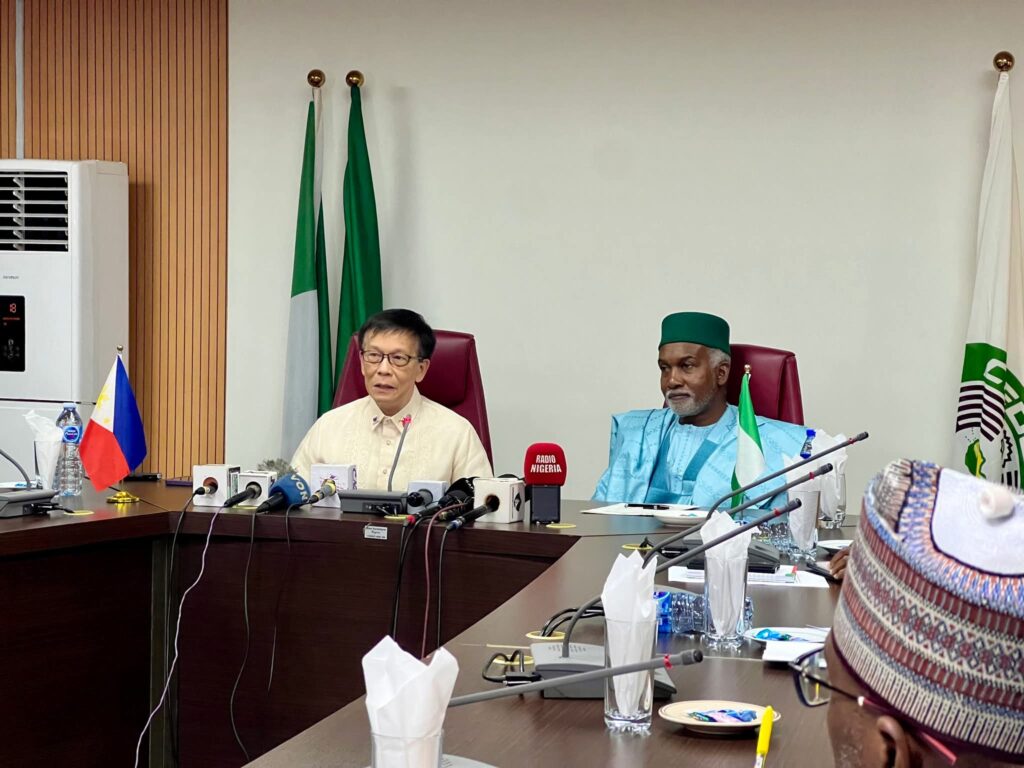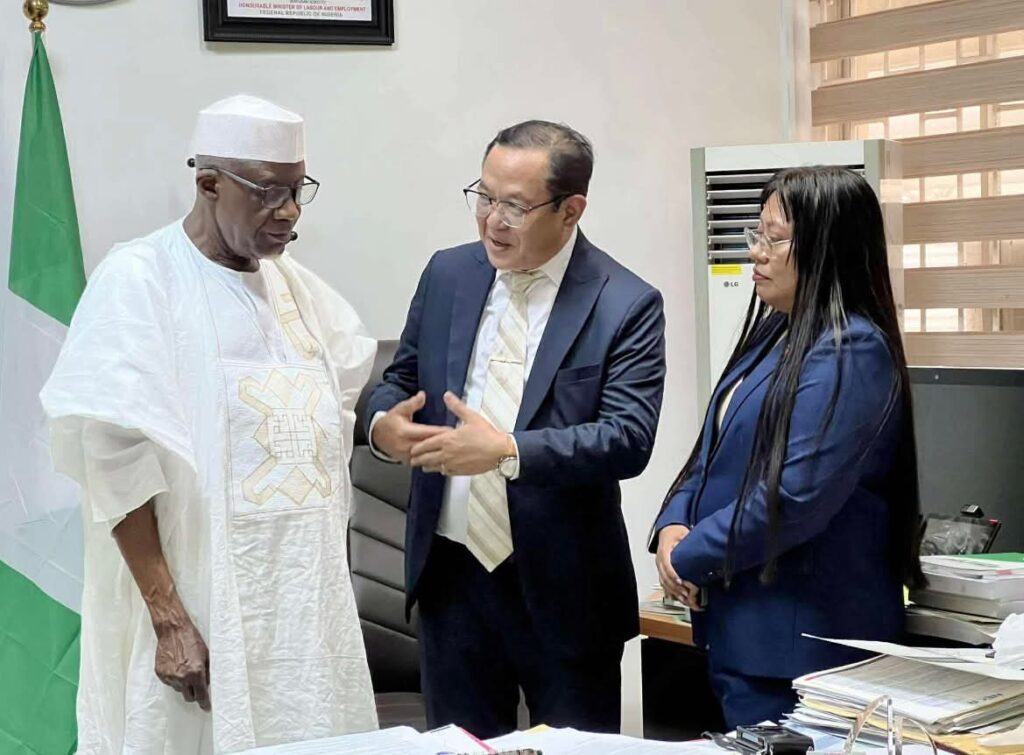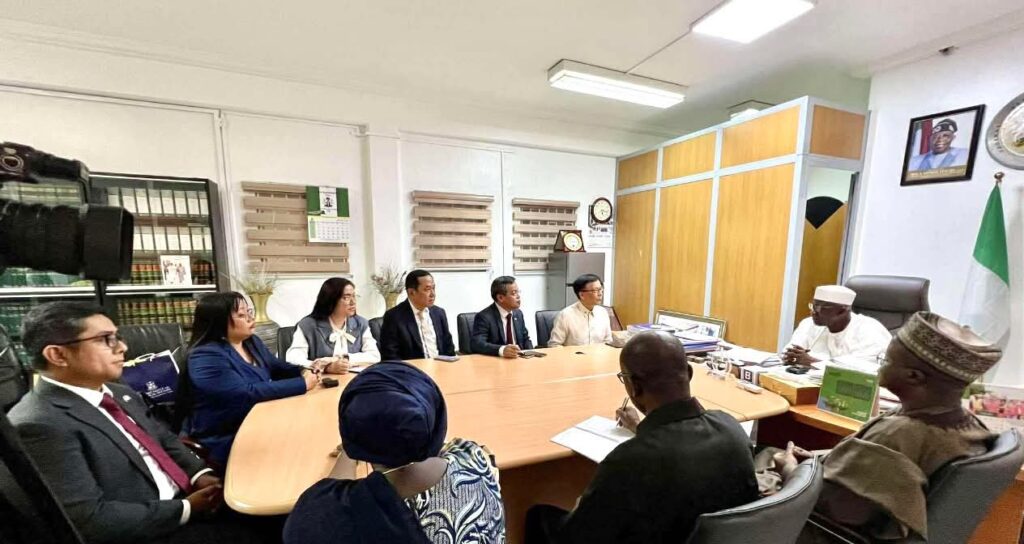Philippines Launches Strategic Labor Mission in Africa: OFW Office to Rise in Nigeria Amid Growing Regional Demand.
By Raymond Enoch
In a landmark diplomatic and labor development, the Philippine Department of Migrant Workers (DMW) is expanding its footprint in Africa with the upcoming opening of a Migrant Workers Office (MWO) in Abuja, Nigeria, aimed at strengthening protection and support for thousands of overseas Filipino workers (OFWs) across the region.

This strategic initiative aligns with President Ferdinand R. Marcos Jr.’s commitment to enhance the welfare and rights of Filipinos abroad, especially in emerging labor markets. The new MWO will serve as a crucial lifeline for more than 6,000 Filipinos in Nigeria and extend support to OFWs in 12 other countries across West and Central Africa, under the jurisdiction of the Philippine Embassy in Abuja.

Migrant Workers Secretary Hans Leo J. Cacdac, leading the high-level mission to Nigeria, was joined by Philippine Ambassador Mersole Mellejor and key DMW officials in meetings with Nigerian Foreign Minister Yusuf Maitama Tuggar and Labor Minister Dr. Muhammad Maigadi Dingyadi. The talks focused on enhanced labor cooperation, welfare mechanisms, and laying the groundwork for a potential bilateral labor agreement.
“We are deeply grateful to the Nigerian government for hosting thousands of our kababayans and for their openness to strengthen ties with the Philippines—not just in labor but also in trade, BPO, and people-to-people exchange,” said Secretary Cacdac.

Foreign Minister Tuggar reflected on the historical bonds between the two nations, notably the significant role of Filipino educators in Nigeria during the 1970s. He also emphasized the value of migrant labor in national development, noting the demand for skilled professionals in Nigeria’s energy, solar, and emerging industries.
Labor Minister Dingyadi expressed full support for the labor office’s opening at the Philippine Embassy and signaled Nigeria’s readiness to enter discussions for a formal labor cooperation framework.
As Africa’s most populous country and largest producer of crude oil and natural gas, Nigeria’s rapid industrial growth has created a rising demand for both skilled and semi-skilled labor—a demand the Philippines is well-positioned to meet. Key sectors such as infrastructure, construction, agribusiness, and services offer new employment frontiers for Filipino workers.
Once operational, the MWO in Abuja will act as a frontline support hub, capable of providing timely labor interventions, legal and welfare assistance, and streamlined coordination with host governments and employers across the African continent.
Joining Secretary Cacdac on the Abuja mission were Undersecretary Jainal Rasul, Jr., OIC Assistant Secretary Julyn Ambito Fermin, Director Geraldine Mendez, and Desk Officer for Africa Hanna Grace—signaling the DMW’s full commitment to institutionalizing support for Filipinos in Africa.
As the Philippine government continues to pursue bold and forward-looking policies for OFWs worldwide, the Abuja office represents more than just infrastructure—it is a declaration of the country’s global care mandate and its belief that no Filipino should ever feel alone abroad.







